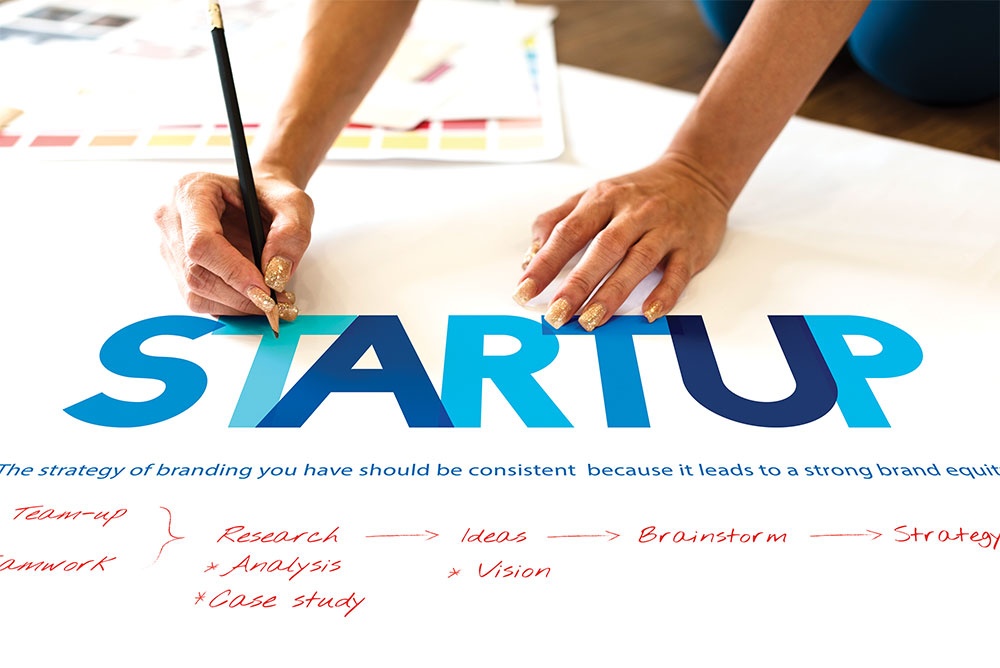Startup ecosystem requires helping hand
After studying agricultural technology at the Faculty of Agriculture, Food and Environment of Israel’s Hebrew University, Tran Nhat Huy wants to return to Vietnam to establish a startup on agritech, with solutions helping farmers to save water and prevent pesticides during crop production.
“My three friends and I will graduate next January and we are now working for an Israeli aquaculture production tech group that is expected to begin its presence in Vietnam next year, to provide services and consultancy for construction of fish farms,” Huy told VIR.
“However, we need at least $80,000 for our startup and currently we don’t know how to secure it,” Huy said. “We also need to learn more about establishing it. Everything is now under discussion, but we want to contribute to the homeland what we have studied in Israel.”
Despite the country’s enormous potential and demand, Vietnam has almost no specific regulations for developing startups in general and agritech ones in particular.
 |
| Startup ecosystem requires helping hand |
The Asian Development Bank (ADB) in July released a report on Vietnam’s ecosystem for tech startups, with a focus laid on five Vietnamese agritech startups (Agri Hitech, APPA Group, MrFarm, NextFarm, and SGS) and six healthtech ones (One Vietnam, Finizz, ISOFH, OneLink, VieVie, and Viet Software).
“All startups typically have difficulty recruiting and maintaining human resources. Market penetration and financial sustainability are problems for all startups,” stated the report. “In addition to their small size, all tech startups surveyed have limited equity. To raise initial capital, the startups use their own funds or those of family and friends or special funds offered by government agencies as the standard source of funding. All three types of funding are insufficient for expansion.”
Respondents indicated that they need to spend more time on marketing and solving financial problems in order for the businesses to develop and survive, said Truong Thinh Pham and Aimee Hampel-Milagrosa, who compiled the report.
The two experts also pinpointed some other obstacles to startup development in Vietnam. Specifically, recruiting and maintaining adequate human resources is a common problem as they cannot pay high salaries and are not willing to give their employees equity in the company. This is an even more serious problem in the healthtech sector, where some medical knowledge is required.
“The critical factor for the survival and development of startups is capital. In addition to their small size, all interviewed startups have limited equity. Some startups generate modest revenues but do not have sufficient cash flow to cover the costs associated with expanding their market,” Pham said.
Promising lands
In Vietnam, the concept of technology-based startups is relatively new as it is only in 2016 that all the components of a startup ecosystem became available. There are no official figures on the number of tech startups; it is estimated that the total number in 2021 was around 3,800, with four homegrown unicorns: VNG, VnPay, SkyMavis, and MoMo.
Startups in Vietnam became increasingly active in 2018 when the nation attracted $448 million in capital investment in startups, doubling to $861 million in 2019 and about 10 times more than in 2017. Investments in tech startups reached a record high of $1.4 billion last year, the National Innovation Centre reported.
The national startup ecosystem is focused on developing vibrant, fast-growing businesses based on the use of intellectual property, technology, and innovative business models. Policies to encourage investment in startups in Vietnam are gradually being completed to demonstrate the government’s commitment to improving the business environment for tech startups, such as the numerous government-sponsored pitching competitions and the visit-and-learn experiences to other countries with developed startup ecosystems.
The Law on Small- and Medium-Sized Enterprise Support officially established the legal status of startups. The most important legal document to date, Decree No.38/2018/ND-CP from March 2018, details the formation and operation of innovative startup funds. This created an important legal basis for the establishment of organisations supporting Vietnamese startups, and also laid the groundwork for the development of a capital market for innovative startups.
As a result, several local investment funds have been established to provide financial support to startups. Branches of international venture capital offices, accelerators, and coworking spaces have been opened in Hanoi and Ho Chi Minh City.
Challenges
However, for the startup ecosystem in Vietnam to flourish, the ADB suggested that legal provisions and policies supporting startups in Vietnam may need to be updated and harmonised across agencies.
“Most legal provisions target small- and medium-sized enterprises (SMEs) and few provisions apply to startups. While SMEs and startups may seem similar at the initial stage, there is a clear difference between the two, which should be filtered into distinct policies,” said the ADB report.
Nguyen Tao Chuyen, director of NTC Agro Trading JSC in Hanoi, had his startup dissolved last year after five years of operations. Although providing clean and safe farm products to restaurants and hotels in Hanoi, the company found it hard to implement its solutions using high technology in freezing products due to difficulties in capital access.
“We had to resort to loans from relatives and friends, but this situation couldn’t last long as we also had to pay debts. Some partners wanted to contribute, but their capital was not enough,” Chuyen said.
In 2016, the government enacted “Supporting the National Innovative Startup Ecosystem until 2025”, a scheme known as Project 844. It laid the groundwork for the creation of a friendly environment to maximise the value of startup activities and the scientific knowledge of the community.
“With the exception of Project 844, which sets specific quantitative goals for startup development, other policies do not have binding responsibilities for startup development success. For example, other ministries, agencies, and organisations charged with formulating annual plans to support innovation for startups do not have specific activities to implement Project 844,” the ADB said.
“At the local level, although the implementation plan for Project 844 has been issued, actual implementation is still in its early stage, so results cannot be assessed. What is known is that support from government agencies lacks detailed and enforceable regulations, which is reflected in unclear implementation plans in some communities. Their plans simply repeat the content of Project 844 without developing specific local measures for startups.”
Huy and his friends have also heard about Project 844. “However, it remains vague. In Israel, if you have an idea for a feasible startup, it gets very special support from the government in terms of loans and business location,” Huy said. “However, in Vietnam, startups require more capital than their current operating capital. They often use their own funds to raise initial capital or turn to their family and friends to obtain it. However, these are usually small amounts, less than $10,000, that do not get them very far. If this occurs to us, I am not sure our startup can flourish in Vietnam.”
According to the ADB, Vietnam is competing with regional leaders in creating a favourable ecosystem for startups. However, if challenges are removed, it is expected that the country could very well be the next China or India for startups.
 | Ascend Vietnam Ventures surpasses $50 million target On June 28, Ascend Vietnam Ventures announced that it exceeded its $50 million target for its flagship early-stage venture capital fund, AVV Alpha. Led by Binh Tran and Eddie Thai, the fund is seeking the next wave of globally iconic startups emerging from Vietnam. |
 | Moving from budding startup to global conqueror As the economy is back on track again, many entrepreneurs are eager to push through with their startups. Thye Yeow Bok, head of Startup Ecosystem Southeast Asia at Google, talked to VIR’s Nguyen Hai about the right strategies to conquer local and global markets. |
 | Vietnam's innovation start-up ecosystem investment forecasted to hit $2 billion Vietnam's innovation start-up ecosystem is forecast to see an investment of US$2 billion, maintaining the form of a "rising star" of start-ups in South Asian countries. |
What the stars mean:
★ Poor ★ ★ Promising ★★★ Good ★★★★ Very good ★★★★★ Exceptional
Related Contents
Latest News
More News
- Hermes joins Long Thanh cargo terminal development (February 04, 2026 | 15:59)
- SCG enhances production and distribution in Vietnam (February 04, 2026 | 08:00)
- UNIVACCO strengthens Asia expansion with Vietnam facility (February 03, 2026 | 08:00)
- Cai Mep Ha Port project wins approval with $1.95bn investment (February 02, 2026 | 16:17)
- Repositioning Vietnam in Asia’s manufacturing race (February 02, 2026 | 16:00)
- Manufacturing growth remains solid in early 2026 (February 02, 2026 | 15:28)
- Navigating venture capital trends across the continent (February 02, 2026 | 14:00)
- Motivations to achieve high growth (February 02, 2026 | 11:00)
- Capacity and regulations among British areas of expertise in IFCs (February 02, 2026 | 09:09)
- Transition underway in German investment across Vietnam (February 02, 2026 | 08:00)

 Tag:
Tag:




















 Mobile Version
Mobile Version